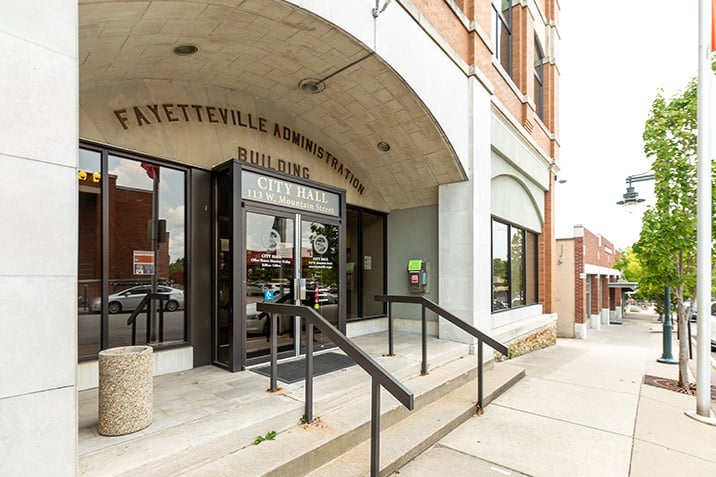
Flyer file photo
FAYETTEVILLE — The city now has more options on how to spend its share of American Rescue Plan Act funds.
City Council members on Tuesday voted 6-1 to take a standard deduction of $10 million which allows a wider variety of uses of the pandemic relief money.
The U.S. Department of Treasury in January said municipalities are eligible to claim the standard allowance to fund government services.
Chief Financial Officer Paul Becker said making the claim does not increase the total amount awarded, but it does allow more flexibility in how the money is spent by eliminating some restrictions that prevent using the funds for certain infrastructure projects or work force development training programs.
Examples of projects that could be funded include sewer and water drainage work, park development, or construction of new sidewalks, Becker said.
Fayetteville was awarded $17.9 million as part of the program, and has so far spent or set aside about $3 million of those funds.
The council put $1.8 million of the money toward appreciation pay to city employees for working during the pandemic. It also authorized $400,000 for a vaccine incentive program, and this moth allocated $1 million for nonprofits that experienced losses during the pandemic.
Teresa Turk, a council member in Ward 4, was the only person to vote against claiming the deduction. Councilmember Sarah Bunch was absent during the vote.
Turk said the city already has plenty of options for spending the money. She said instead of opening up more potential uses of the funds, the city should “keep its eye on the prize” and stick to expenditures that are directly related to pandemic relief.
Council member Mike Wiederkehr of Ward 2 said there’s no harm in providing more flexibility, especially considering the city wouldn’t be locked into spending the money any specific way.
Mark Kinion, the council’s other Ward 2 representative, agreed with Wiederkehr.
“This gives us an opportunity to imagine a broad spectrum of things that could help the most people in our community,” Kinion said.
During public comment, a representative from the Environmental Action Committee asked whether there will still be enough money left for a water quality study that’s needed to begin the process of cleaning up Lake Fayetteville, which is something the council pledged to do in July 2021.
Becker said those funds are still be available to use for the study, and the city plans to bring forward a proposal for that at the May 17 council meeting.

